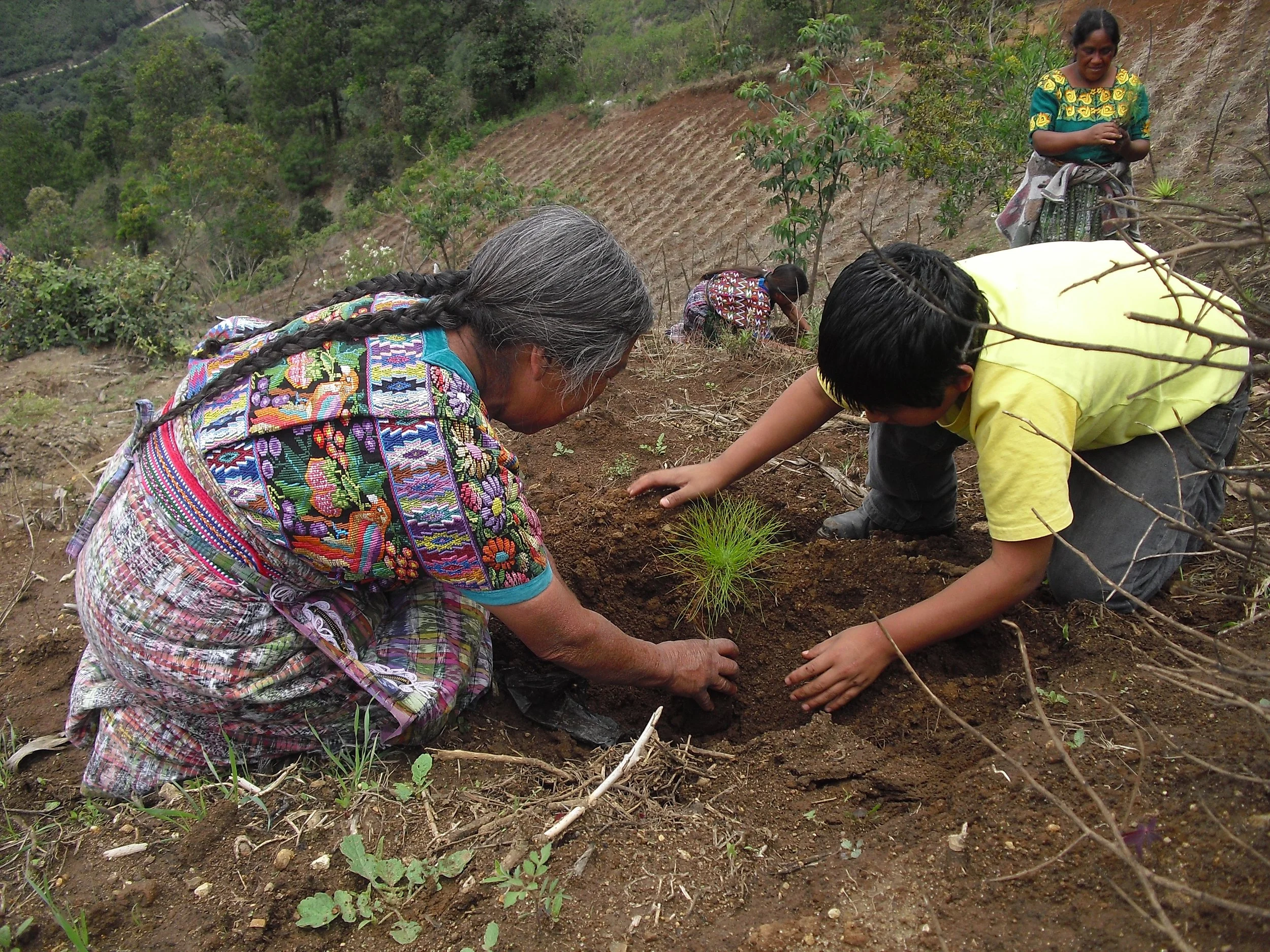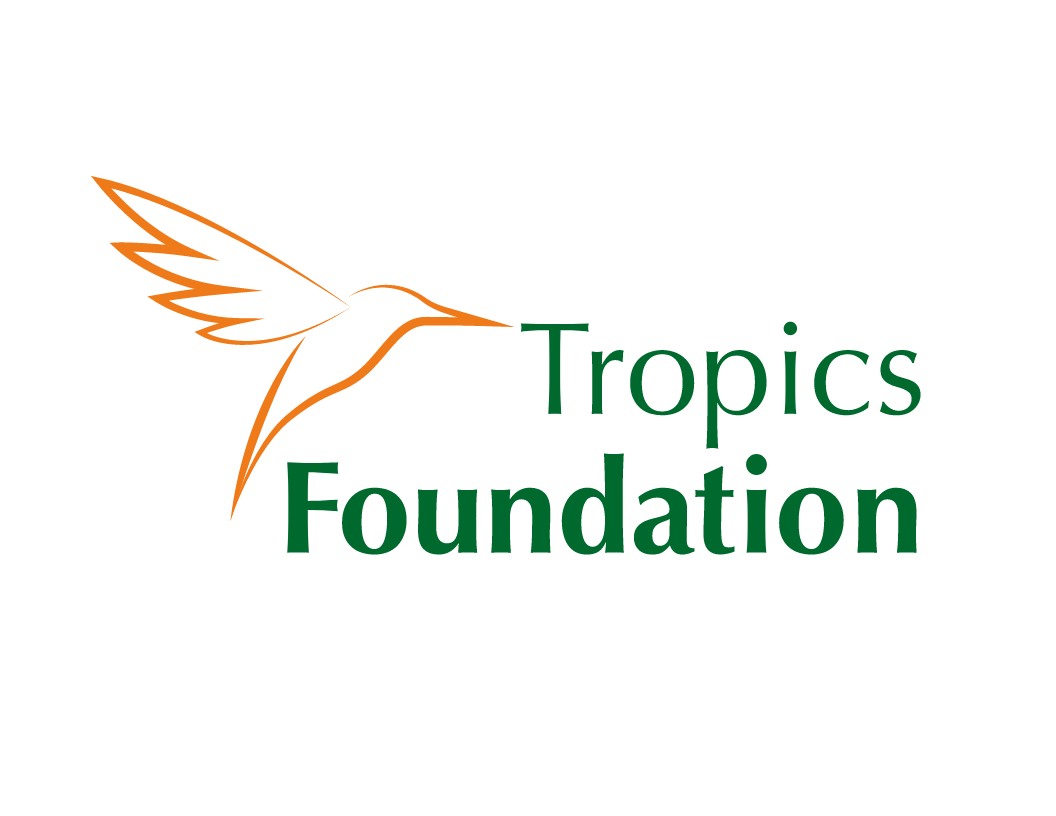
Transformative solutions grounded in local knowledge.
CATIE had been focused on the nexus of sustainable agriculture, natural resource conservation and resilient and equitable communities for nearly 50 years. It is a regional leader providing nature-based solutions grounded in local knowledge.
Experiential learning in the field is a key part of the CATIE experience.
The Tropical Agricultural Research and Higher Education Center (CATIE) is a leading regional center and graduate academic institute located in Turrialba, Costa Rica. CATIE members include Belize, Bolivia, Colombia, Costa Rica, Dominican Republic, El Salvador, Guatemala, Honduras, Mexico, Nicaragua, Panama, Paraguay, Venezuela, and the InterAmerican Institute for Cooperation on Agriculture.
CATIE’s vision is rooted in the notion that the purpose of a university is to serve society through research, education, outreach and innovation. Today’s challenges of poverty, climate change, food insecurity, deforestation and biodiversity loss call for research, evidence-based solutions, and partnerships that can deliver impact. Together with CATIE’s member countries and extensive network of partners, students work collaboratively to build and scale local and regional capacity to transform food and farming systems, improve people’s lives and sustain the environment in the American Tropics & beyond!
CATIE Impact.
RESEARCH: Advancing applied research and nature-based solutions to solve the region’s environmental and socioeconomic challenges.
EDUCATION: Educating future leaders, influencers and decision-makers.
POLICY: Informing policy development in the region to integrate climate, natural resource conservation and agriculture.
INCLUSIVE GREEN DEVELOPMENT: CATIE’s development model is based on the belief that each generation has the right to inherit the same diversity in natural, cultural, health, and economic resources enjoyed by previous generations and to equitable access to the use and benefits of these resources. This requires full participation of different groups in society and the maintenance of the capacity of natural capital so that it can provide the ecosystem services upon which we all depend.
PARTNERSHIPS: Cultivating partnerships at every level - from international organizations and national governments to local communities, farmers and Indigenous peoples - to scale impact through landscape approaches.
Help us conserve the natural capital in CATIE’s seed bank.

CATIE had been focused on the nexus of sustainable agriculture, natural resource conservation and resilient and equitable communities for over 75 years. It is a regional leader providing nature-based solutions grounded in local knowledge, including indigenous knowledge.
“At CATIE, we form leaders of change in multidisciplinary topics that the countries of the region are demanding in order to meet their multiple challenges. These challenges include inclusive sustainable intensification of agriculture, climate resilience, water management and security, climate-smart livestock, agroforestry and forest systems, restoration of degraded lands, conservation of ecosystems and improved livelihoods among the rural poor.
We are able to scale impact in each of these areas through our strategic partnerships, our network of graduates, and ongoing training courses to reach hundreds of thousands of people in the hemisphere.
Building on CATIE’s internationally recognized history in scientific and systemic research, technology, graduate education and outreach, and on use of its globally important genetic collections of coffee and cacao, we are uniquely positioned to make positive impacts on lives, landscapes and legislation.”
— Muhammad Ibrahim, Director General, CATIE
“In the face of growing environmental and climate risks, CATIE is a catalyst for innovation and change in the American Tropics. The role of CATIE in supporting smallholder farmers to adopt transformative production practices cannot be overstated. Our students, professors, and researchers are contributing to the evidence and the science to increase agricultural yields, diversify income streams and reduce poverty in Latin America and the Caribbean while reducing carbon emissions, protecting nature and biodiversity and delivering on goals like gender empowerment. Our students need your support. Please give generously so that we can all live better, and sustainably, on this Earth of ours.”
— Laura Scandurra, President, Board of Directors, CATIE

Visiting Costa Rica? Stop by CATIE’s botanical garden.
Located just two hours east from San Jose, and nestled in a mountainous landscape surrounded by abundant tropical vegetation, coffee plantations, farms and sugar cane fields, is the Valley of Turrialba. Since 1942, the valley has been home to the campus headquarters of CATIE (Tropical Agricultural Research and Higher Education Center), which houses some of the most important plant collections in the Americas.
Many of the center’s collections are located in the Botanical Garden, a 45 hectare farm that maintains nearly 4,400 genetic samples— representing more than 280 species from around the world. The garden is a laboratory for students and scientist investigating the molecular and morphological characteristics of various species as well as an educational site to learn about environmental conservation and the sustainable use and protection of our natural resources.
Location
10, Cartago Province, Turrialba, Costa Rica
Phone
+506 2556 2700






